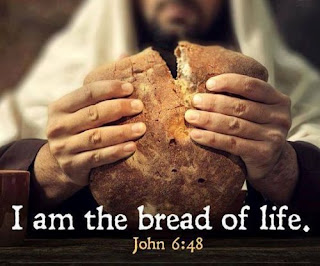Many people fight about who will be
first in line, first in the door, or first at the table because for them being
‘first’ is about privilege and control. To me it sounds a little silly that so
many intelligent people get caught up in the race of “who will be first?” So,
here we are coming to the end a of another political “silly season” inhabited
by gubernatorial, mayoral and local candidates.
Not much has changed since the
first-century Jewish world. In the context of (Mark 12:28-34), to be ‘first’ carries
the weight of the first stone laid, the cornerstone upon which all of the other
stones must rest. Consequently, the greatness of the love commandment lies not
in its devaluing all other commandments of Jewish law, but, rather, in its
ability to hold up all other commandments on a “pedestal.” It’s
less about beating out all of the other candidates to the finish line
and more about helping them to do their jobs.
Mark’s Gospel records how Jesus, in
love, surrenders his life to bolster us up in our weakness. The two love
commandments come first in the law because it is on them that all of the rest
of the commandments of the Torah rest, and really it is all that God asks of His
people.
Testament. The first, phileo,
refers to ‘brotherly love,’ or a love between equals and expects reciprocity.
(This is where the city of Philadelphia gets its name). The other, agapao,
refers to a complete and selfless love and expects self-giving. Neither love
reflects a solely emotional state, but rather, points to the relation in which
one person lives toward another.
The scribe in Mark’s account appears
sincere in his inquiry, although Mathew’s account suggests that the scribe is trying
to trap Jesus into weighing in on the use of the word for love. The word love (agape) is
derived from the Septuagint (the Greek translation of the Hebrew Bible with
which Jesus and his contemporaries would have been familiar). On the cross,
Jesus acts with this agape love.
But agape love
doesn’t always have to mean death. At its heart, what it really means, is
simply putting others first. This is countercultural today and especially evident
in running a good political campaign.
Acting with agape love
as means stepping back from any other code of conduct may characterize our
personal ethics and ask: What does this mean for my neighbor? Or,
even more potently, Is this me giving myself to my neighbor? Is
this me giving myself to my God? Because to put love of God and
neighbor first means not just providing what we think is best for our brethren,
but rather, to act in such a way that we give our very self to our neighbor and
to let that be the foundation upon which everything else is
built. Wasn’t that Jesus’ ultimate “gift” to us? (Adapted from Amy Lindeman Allen,
Political Theology Today, 2015)






















